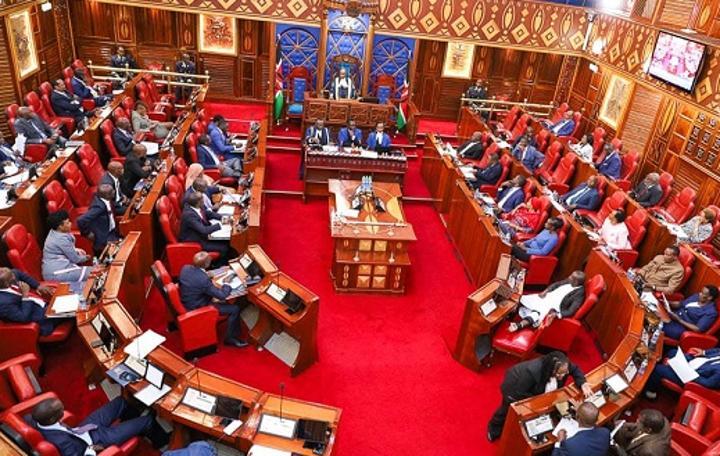Africa-Press – Kenya. MPs want a special audit of the Sh6 billion judiciary mortgage scheme, which they claim has operated for more than a decade without a legal framework despite managing more than Sh5.3 billion.
The Public Accounts Committee announced it will write to Auditor General Nancy Gathungu to request a comprehensive probe.
This audit will examine the fund’s governance, disbursement criteria, beneficiaries and compliance with the law.
The committee’s chair, Butere MP Tindi Mwale, said the memorandum of understanding between the Judiciary and Kenya Commercial Bank from 2011 is essentially a “gentleman’s agreement” that could be abandoned at any time, jeopardising the massive public funds involved.
“We will be asking the Auditor General to undertake a special audit on this scheme, including the MoU,” he said.
“An MoU is a gentleman’s agreement. We are talking about Sh5 billion. What happens if the bank says, ‘We can’t lend you for the next five to 10 years’? What will you do?”
The issue came to light during the committee’s review of the Auditor General’s report on the judiciary’s financial statements for the year ending June 30, 2023.
In her findings, Gathungu noted that the scheme lacked enabling legislation, and the judiciary’s management could not provide a satisfactory explanation for this.
Consequently, the legality of the fund and its operations remains unconfirmed.
Committee members accused the judiciary of flouting the PFM Act by operating the scheme based on an MoU rather than legislation.
Led by Bura MP Yaqub Adow, they questioned how a fund of this magnitude could function for 12 years without a legal foundation or competitive procurement, noting that the judiciary only began drafting regulations in 2024.
“This is a very serious matter, close to Sh6 billion. That is a whole year’s budget for Tana River county,” he said.
“Operating such a huge amount without any enabling legislation is a matter we cannot wish away.”
Turkana Central MP Joseph Namuar highlighted the irony, given the judiciary’s own rulings on government projects.
“Your office holds one of the highest authorities. You halted affordable housing and the Social Health Authority due to a lack of legal frameworks,” he said.
“Now, your mortgage scheme operates since 2013 on just an MoU. Seriously, the scheme could be abolished because there is no regulation.”
Appearing before the committee, top judiciary officials defended the scheme.
They were, however, hard-pressed to explain why a fund started in 2013 with seed capital from the exchequer has been managed through an MoU rather than legislation.
Chief Registrar of the Judiciary Winfridah Mokaya disclosed that the scheme, now a revolving fund, has undergone only two audits since inception, raising transparency concerns.
MPs warned that the absence of regulations exposes public funds to misuse and undermines the accountability the judiciary is meant to uphold.
They argued a special audit is essential to uncover possible breaches, including whether the National Treasury aided in circumventing procurement laws by recommending specific banks.
Samburu West MP Naisula Lesuuda questioned why KCB was chosen as the sole manager without competitive bidding.
“We need to examine whether there was competitive bidding involving KCB, Equity Bank or any other institution, or if the decision was simply made to proceed directly with KCB,” Lesuuda said.
Mwale echoed this, stressing that competitive procurement should have been followed.
He warned that the committee’s eventual recommendation would likely be to abolish the scheme due to its lack of proper legislation.
In response, Mokaya explained that the Judiciary had explored other banks, including Equity and National Bank.
“As of now, we have not been given the approval to move from KCB to any other bank. So that is where we are,” she said.
Mathioya MP Edwin Mugo and Aldai MP Maryanne Kitany supported the call for a special audit, noting it would answer outstanding questions and reveal who has benefited from the unregulated scheme.
Kitany emphasised that under the PFM Act, all public money must be governed by legislation, and any directive from the National Treasury favouring a specific bank must be scrutinised.
“It is crucial that, during this special audit, any such letters from the National Treasury be produced,” Kitany said.
“This would reveal whether the Treasury has facilitated institutions in breaching the law.”
Judiciary officials admitted to operationalising the scheme without a proper legal foundation but insisted they are now working with the Treasury to fast-track draft regulations.
The PAC, however, cautioned the officials that accountability rests with them as the accounting officers, not the Chief Justice, and they would be held responsible for any violations.
For More News And Analysis About Kenya Follow Africa-Press






